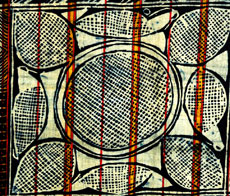
artigos e ensaios - 2005 / Mariza Peirano
Anthropology with no guilt: a view from Brazil
A new divide seems to be in course regarding anthropology: While in the metropolitan centers it appears either doomed to extinction or bent into "studies" (feminist, cultural, science and technology etc.), in other locations anthropology is well and thriving or, if not thriving, at least providing a positive and constructive edge or approach. Renowned scholars in the 1960s warned their colleagues that anthropology might become a science without an object because of the physical disappearance of whole populations following contact, and because of the rejection of anthropology by newly independent nations. Anthropology's past sins and malpractices would lead former "natives" to turn anthropologists down. A decolonization of the social sciences was in order. Indeed, time has confirmed these expectations, but something not anticipated happened ― due to the guilt associated with colonialism, anthropology is being devalued even by the descendants of those who first crafted the idea of overseas fieldwork, i.e., the anthropologists from the centers.
In this paper I will confront this apparent puzzle by examining the Brazilian case in the context of the larger global picture. I start by looking at some of past sins attributed to anthropology, and then turn them upside down to detect possible values and virtues. I propose that, in Brazil, anthropology's values and virtues are more stimulating than its sins; I also suggest that exoticism has been acculturated as "difference" (whether social, cultural or territorial) and that guilt has not prospered in a context which has always demanded social scientists' commitment to their objects of study. I then examine the plurality of otherness, as found in anthropology in Brazil, and conclude the paper with a brief discussion on the implications of the label "national anthropologies". Leia na íntegra...
